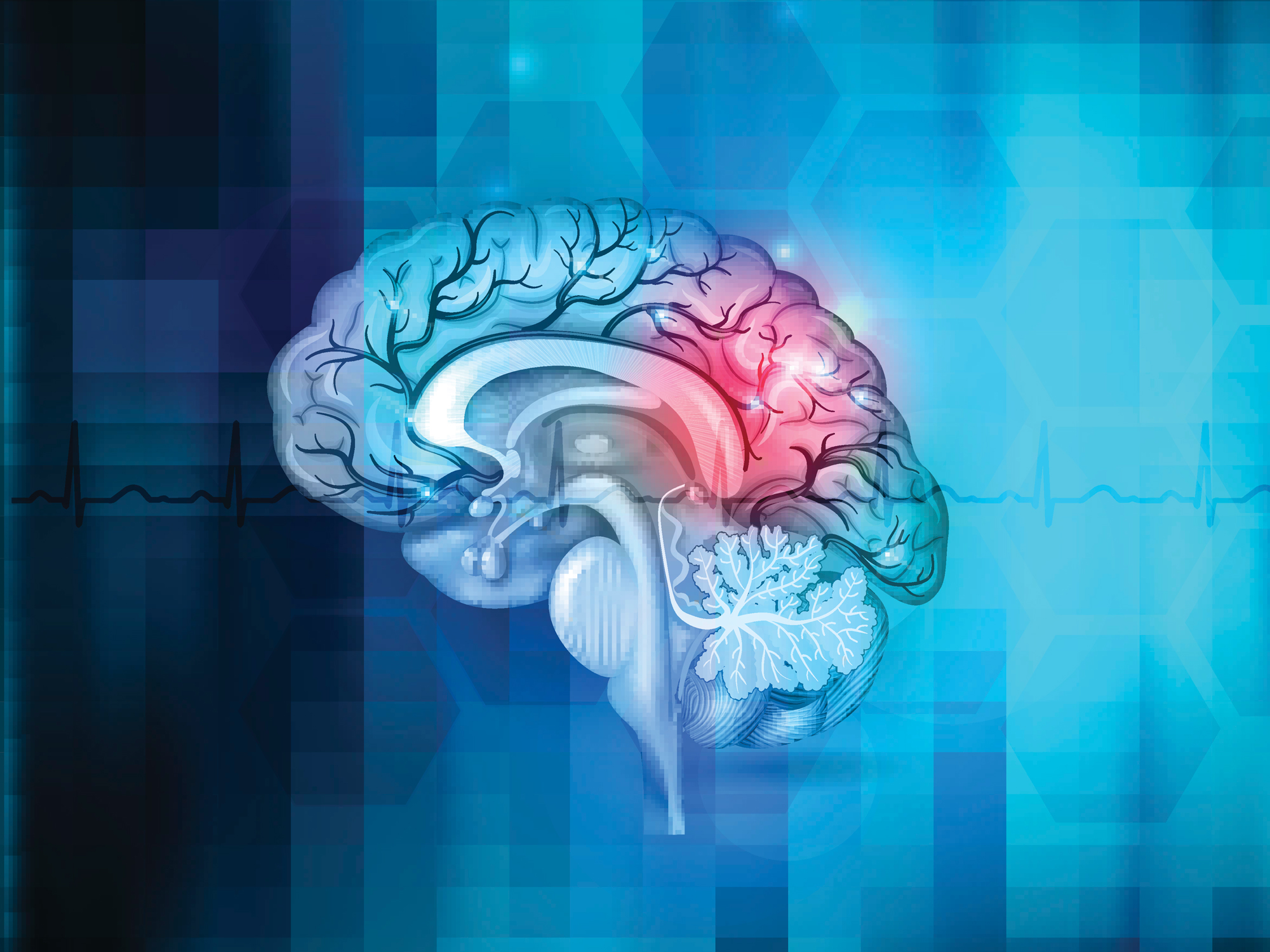Get Easy Health Digest™ in your inbox and don’t miss a thing when you subscribe today. Plus, get the free bonus report, Mother Nature’s Tips, Tricks and Remedies for Cholesterol, Blood Pressure & Blood Sugar as my way of saying welcome to the community!
5 steps to lower the dementia risk that follows stroke

My sweet neighbor was a successful executive, but in the last several months, he was forced to retire from his job and could no longer drive himself or even stay at home alone during the day.
Daily, his symptoms of Alzheimer’s are worsening.
The only time he and his wife have ever experienced such a complete upheaval in their lives was a few years before when he had a stroke. Luckily, the stroke was minor, and he’d recovered quickly.
At least that’s what his doctor indicated. But is any stroke ever minor?
Even if you appear to gain a full recovery, there’s something sinister waiting for you around the corner… Having a stroke greatly increases your chances of developing Alzheimer’s.
In talking to my neighbor’s wife, they never expected it. Few people do because the cause and effect are just really coming to light…
A clear and present danger
Multiple past studies have established a link between stroke and dementia, but no one actually knew how much having a stroke could affect your risk until recently when researchers at the University of Exeter Medical School set out to discover the truth.
They analyzed information from 48 studies of 3.2 million people with a past history of stroke and here’s what they found…
A recent stroke more than doubles your dementia risk and any past stroke (no matter how long ago) raises your risk by a whopping 70 percent!
According to the researchers, these findings give clear evidence of the importance of protecting the blood supply to your brain in preventing dementia.
How to protect and preserve your brain’s blood supply
But, how do you do that? Fortunately, it’s not rocket science and it doesn’t involve blood sweat and tears. In fact, there are five steps that just about anyone can take to put the odds in their favor…
#1 – Get moving like your life depends on it
The more you move, the better your blood flow to your brain.
In fact, if you want to preserve this blood flow, the worst thing you can do is fall victim to the “sitting disease.”
So, get regular physical activity and if you find that your lifestyle is more sedentary than it should be (with lots of computer or TV time) set a time to remind yourself to get up.
#2 – Boost your D levels
Research shows that low levels of vitamin D have a negative effect on your brain blood flow. This makes getting your levels tested and adding in a daily D supplement vitally important. Vitamin D deficiency has a strong association with dementia.
#3 – Don’t forget your omega-3s
Fish oil is pretty much the magic bullet in natural medicine and when it comes to brain blood flow, it’s no different.
Scientists have proven that the omega-3s found in fish oil can significantly boost overall blood flow to your brain as well as blood flow to specific regions involved in cognitive tasks.
For omega-3 supplementation to boost brain blood flow, I recommend krill oil, because it doesn’t have that fish burp side effect of fish oil–and include a strong antioxidant, astaxanthin.
#4 – Add resveratrol
If you haven’t heard of resveratrol, it’s the compound found in the skin of grapes that turns them (and that glass of red wine) into an antioxidant punch to protect your body from free radical damage.
And it turns out, it’s also a great way to boost brain blood flow.
One study found that in people taking 250 to 500 mg of resveratrol, the higher the dose, the better brain blood flow and oxygenation of the brain.
While another study found that even a small dose of 75 mg had the power to increase cerebral blood flow.
#5 – Raise your nitric oxide levels
Nitric oxide (N-O) is a compound in your blood vessels that causes them to widen so that more blood can flow through to your body, your organs, and yes… your brain.
But, we don’t always make enough of it so it’s important to take supplements that raise our nitric oxide levels. Try adding beets to your diet, a beet powder mix or supplement.
Stroke can more than double your risk of dementia but there are ways to keep blood flowing to your brain to protect yourself. Use the five steps above to increase brain blood flow and stave off dementia.
Editor’s note: Are you feeling unusually tired? You may think this is normal aging, but the problem could be your master hormone. When it’s not working, your risk of age-related diseases skyrockets. To reset what many call “the trigger for all disease” and live better, longer, click here to discover The Insulin Factor: How to Repair Your Body’s Master Controller and Conquer Chronic Disease!
Sources:
- Stroke doubles dementia risk, concludes large-scale study — University of Exeter
- Correlation between serum 25-hydroxyvitamin D concentrations and regional cerebral blood flow in degenerative dementia — Nuclear Medicine Communications
- Quantitative Erythrocyte Omega-3 EPA Plus DHA Levels are Related to Higher Regional Cerebral Blood Flow on Brain SPECT — Journal of Alzheimer’s Disease
- Docosahexaenoic acid-rich fish oil modulates the cerebral hemodynamic response to cognitive tasks in healthy young adults — Biological Psychology
- Effects of resveratrol on cerebral blood flow variables and cognitive performance in humans: a double-blind, placebo-controlled, crossover investigation — The American Journal of Clinical Nutrition
- Acute Resveratrol Consumption Improves Neurovascular Coupling Capacity in Adults with Type 2 Diabetes Mellitus — Nutrients
- Low dose resveratrol improves cerebrovascular function in type 2 diabetes mellitus — Nutrition, Metabolism and Cardiovascular Diseases












